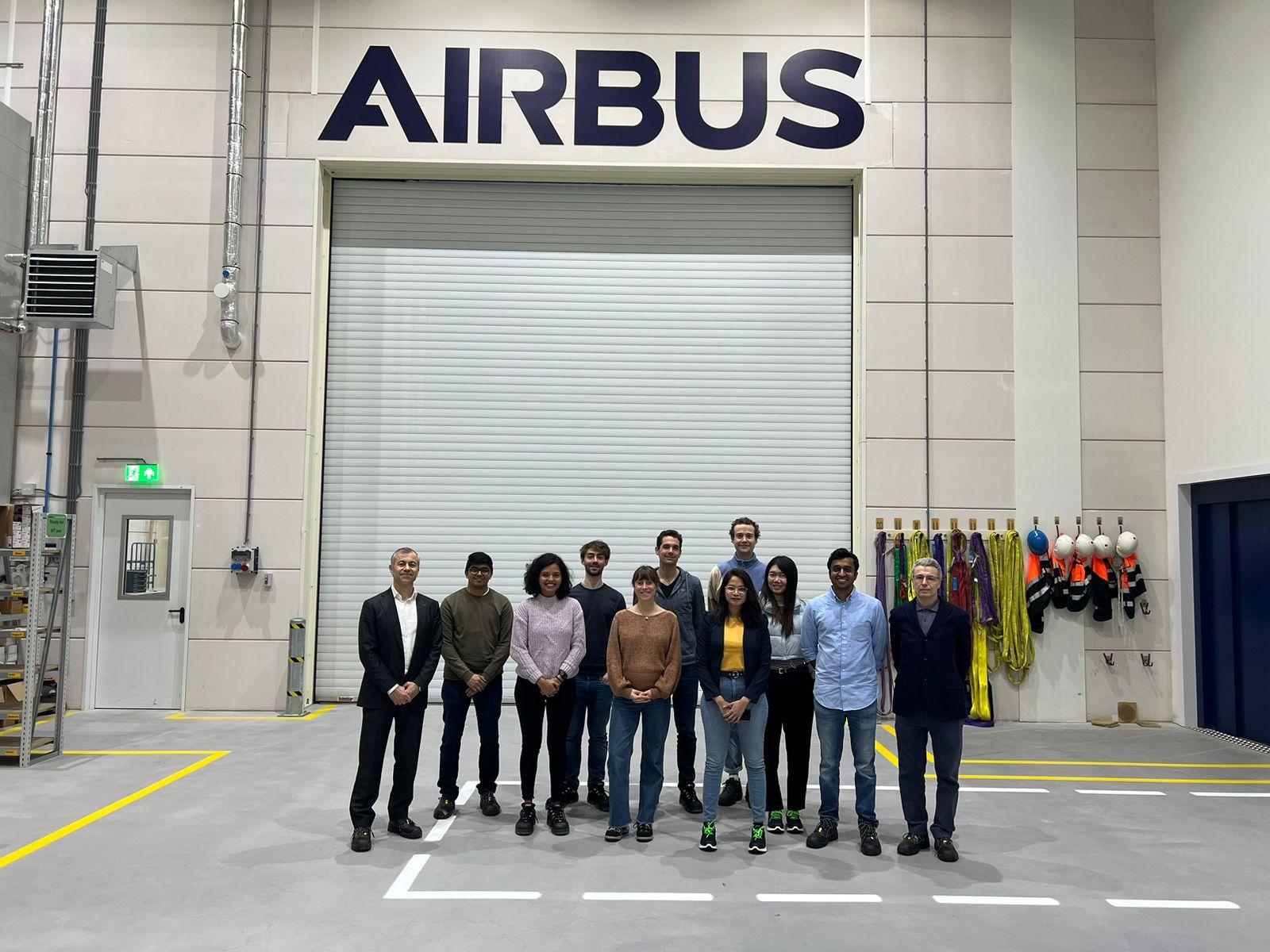Every other week, we follow a student from one of our Interdisciplinary Thesis Labs. This week: Iñigo Irache, master student Industrial Ecology at Leiden University and TU Delft, from our Circulaerospace lab, organised together with Airbus.
My name is Iñigo and I am an Industrial Ecology master’s student at Leiden and Delft universities, similarly to this lab in our master, we address sustainability topics from a multidisciplinary perspective. As part of the Circular Aerospace program in collaboration with the airplane manufacturer Airbus, I am researching the possibility of using biobased feedstocks for composite plane structures.
I joined this lab as I was eager to conduct research that is not only relevant to my academic studies but is also valuable for industrial stakeholders. A personal drive towards helping in society’s sustainable transition pushes me to work harder on a research topic that might have an influence on big companies’ sustainable strategies.
During the lab sessions, I got valuable insights into the various challenges the aviation industry might encounter in its transition towards becoming a more circular industry. Despite working on a specific aspect of the challenge, the lab allows you to get to know the full picture of the problem. In the lab sessions we address some of these different perspectives on the problem with site visits and expert lectures, also by getting to know the work of my colleagues in the different lab assignments, we get a grasp on different research areas that the industry is exploring today.
Furthermore, what is of great value to me is the possibility to work in close collaboration with an Airbus professional that is supportive of the research I am conducting. Is always nice to sense that there is a real compromise in addressing the sustainability issues that the company is facing today.
Regarding my own research, when evaluating the environmental impact of biomass feedstocks for composite manufacturing there are several factors strongly influencing its performance e.g. type of biomass, sourcing practices, geographical location… Biomass sources can be not much better than conventional fossil feedstocks depending on some of these factors and therefore their lifecycle environmental performance should always be adequately measured.
Biomass systems are not sustainable if they are only routed in the extraction of natural resources without further considerations, they should also provide socio-ecological benefits. The proposed approach of my research goes beyond using biomass sources to improve the environmental performance of manufactured aviation structures and aims to create supply chains that generate value for society and the environment. This can be done by sourcing feedstocks that on top of their main function also provide multiple ecosystem services that address other sustainability concerns like biodiversity loss, land use or rural development among others.

